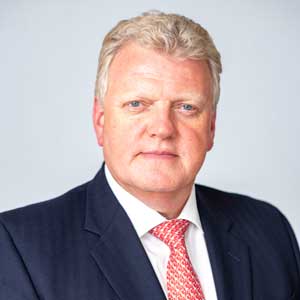The word of the year for 2020 should undoubtedly be “unprecedented”. Yet there are lots of lessons that savvy investors can take away to stand them in good stead for the years ahead. Here, wealth management experts from our panel institutions tell us what 2020 has taught them about managing wealth.
The findaWEALTHMANAGER.com panel of leading institutions represents some of the best brains in the business. Bringing their insights to our readers is one of the most valuable things we do. So, what do expert money managers think the takeaways from 2020 should be?
As Michel Perera, Chief Investment Officer at Canaccord Genuity Wealth Management, observes, this year underscored in the starkest manner that true “black swan” events can and do happen. However, he argues that “managing wealth is not about forecasting the unpredictable”. Thus, good money managers could not and should not have had portfolios that were COVID-19-proof, in his view.
“When survival rather than prosperity was front of mind, even the most seasoned investors can find it tough to navigate through the maelstrom and come out the other side unscathed,” adds Colin MacKenzie, Director, Investment Management at Arbuthnot Latham & Co., Limited.
When survival rather than prosperity was front of mind, even the most seasoned investors can find it tough to navigate through the maelstrom and come out the other side unscathed
Investment agility
Agility in adjusting investment strategy was rather the name of the game, in the experts’ view. “Wealth managers should have moved fast to both protect capital and take advantage of oversold conditions, in most cases pivoting towards areas that could benefit first from the lockdowns and then the recovery,” says Perera.
Wealth managers should have moved fast to both protect capital and take advantage of oversold conditions, in most cases pivoting towards areas that could benefit first from the lockdowns and then the recovery
He also found in the year a lesson in not letting “the wood obscure the trees” and to focus on long-term insights: “Thinking beyond the short-term crisis was essential, with the US presidential election and the Brexit deadline both more important themes for longer-term trends than the temporary pandemic.”
Communication tastes can rapidly change
The year has also shown how rapidly preferences and user patterns can change. Wealth managers have reported how digital communication tools were adopted across client age groups even faster than expected, accelerated no doubt by the boom in people using video calling platforms to stay in touch with family and friends during the pandemic.
“Clients demand better digital services, but we thought face-to-face meetings would always be preferred; 2020 provided a turning point, and our support during the very volatile markets over video calls proved successful,” says David McFadzean, Head of Wealth Management at Nedbank Private Wealth. “Clients are no longer restricted to physical meetings, and will choose the best format for them. They will increasingly access our suite of online wealth services to move or track investment performance and focus the face time on bespoke advice, not the humdrum.”
Clients are no longer restricted to physical meetings, and will choose the best format for them. They will increasingly access our suite of online wealth services to move or track investment performance and focus the face time on bespoke advice, not the humdrum

Top Tip
If the year’s events have got you feeling all at sea about your finances, don’t worry, you are far from alone. Even the most robust of wealth management plans might need substantial revision and if you need to re-evaluate either your plan or your provider you are in the right place. Let us arrange some no-obligation calls with some experts who can help set you on a better path.

Lee Goggin
Co-Founder
Rising risk awareness
The crisis has undoubtedly engendered a laser-like focus on risk exposure, and particularly how this relates to investment time-horizon (when you need access to your money). “Many have learned painful lessons about how much risk they can really tolerate, from both a financial and psychological perspective,” says Lee Goggin, Co-Founder of findaWEALTHMANAGER.com. “About a third of our users believe the crisis exposed flaws in how either they or others had read their risk-profile.”
Many have learned painful lessons about how much risk they can really tolerate, from both a financial and psychological perspective
However, Goggin notes that six in ten see opportunities in market volatility – as well they should, the experts indicate.
“An investor’s experience of, and their reaction to, such thankfully rare events can have both an immediate and lasting impact on their attitude to risk,” says MacKenzie. “However, when managing clients’ wealth, it is probably useful to remember that ‘it is always darkest before dawn’ and that all crises tend to follow a certain sequence of phases, which can provide opportunities to add value.”
Cash flow crises
This strangest of years also saw short-term finances placed under greater scrutiny (and strain) for many people, leaving them with important lessons about cash flow to take forward. “Most commonly, focus has been on ensuring a sufficient emergency cash fund to cope with the unexpected, adjusting the rate of pension drawdown, or simply advice on the timeliness of financial gifting,” says Roger Clark, Head of Wealth Management at Brown Shipley.
Indeed, the importance of keeping a significant emergency fund on hand will be a takeaway from the year for many people, and should be considered a buffer allowing investors to cope with years like this.
Focus has been on ensuring a sufficient emergency cash fund to cope with the unexpected, adjusting the rate of pension drawdown, or simply advice on the timeliness of financial gifting
Most commonly, focus has been on ensuring a sufficient emergency cash fund to cope with the unexpected, adjusting the rate of pension drawdown, or simply advice on the timeliness of financial gifting
Indeed, the importance of keeping a significant emergency fund on hand will be a takeaway from the year for many people, and should be considered a buffer allowing investors to cope with years like this.
“There will be no a coup d’état on cash just yet; it may not be king (or queen), but it certainly still holds a position of power in the inner circle – Arch-duchess perhaps” argues Michael Martin, Private Client Manager at 7IM. “When you have been through the markets of the ‘dot com boom’, Iraq wars, and the Global Financial Crisis, you know that every 6-7 years events like these come along, so this is nothing new. As long as you keep to the fundamentals, and cash for 1-2 years expenditure, you will be able to ride the dips.”
When you have been through the markets of the ‘dot com boom’, Iraq wars, and the Global Financial Crisis, you know that every 6-7 years events like these come along, so this is nothing new
Reviewing plans and providers
As Clark emphasises, 2020 has forced home the importance of contingency planning and the need to reassess things with your adviser at the earliest opportunity. In the view of this and other experts, regularly reviewing your financial plan to ensure that it fits with both family objectives and the current economic climate is good practice at the best of times; during a crisis like this, it is absolutely vital.
Regularly reviewing your financial plan to ensure that it fits with both family objectives and the current economic climate is good practice at the best of times; during a crisis like this, it is absolutely vital
“This year’s events have prompted 40% of our users to rethink their financial objectives and life plans and it’s great that these consultations have been able to continue in the digital sphere,” says Goggin. “The difficulty of achieving investment income is something many people need to strategise for, along with the timing of milestone financial events like retirement.”
The year has inescapably also put providers under the microscope, Goggin confirms. “Although the majority of wealth managers really stepped up, we’ve inevitably encountered those who felt service and proactiveness was lacking,” he says. “Wealth managers are very much open for business and this is certainly a time to be proactive yourself in finding the best advice you can if that is how you feel.”











